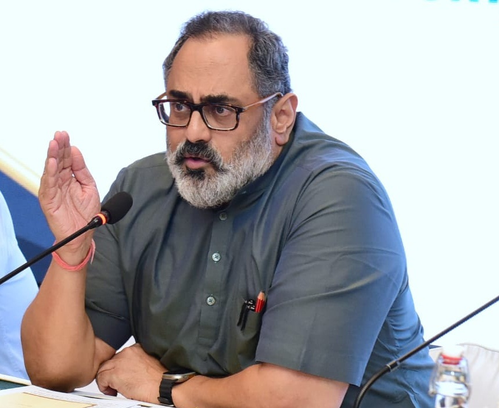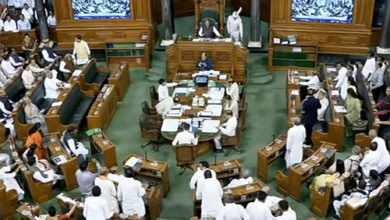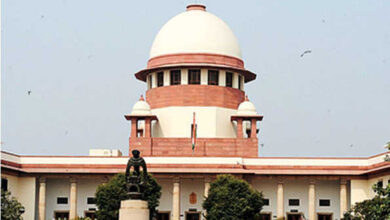
New Delhi, Aug 2 : The Opposition must behave responsibly and come forward to debate and deliberate on the Digital Personal Data Protection (DPDP) bill which is likely to be presented in Parliament this week, Minister of State for Electronics and IT, Rajeev Chandrasekhar, said on Wednesday.
According to a Lok Sabha document, the much-awaited data protection bill is likely to be tabled in the Parliament on August 3.
“We are ready for the debate on DPDP and other important bills but the Opposition is not and is busy disrupting the proceedings. As responsible MPs, they must come forward and debate on these key bills that will improve millions of citizens’ lives,” Chandrasekhar told reporters here.
“I request the Opposition to respect the Parliament and debate on the bills,” he added.
The data protection bill, aimed at safeguarding personal data, was approved by the Cabinet last month.
Primarily, the DPDP Bill has received considerable endorsement from academicians, policymakers and industry players, and will enable India to
safeguard citizen data with a light touch approach,” according to industry experts.
The data protection bill specifies norms on management of personal data of residents in India and requires explicit consent from people whose data is collected and used.
Gowree Gokhale, leader of the IP, technology, media and telecom practice at Nishith Desai Associates said that the bill is a much-awaited legislation.
The industry will need to work closely with the government so that the rules are simple and implementable, especially for the startup ecosystem,
Gokhale said.
“The last version of the Bill was much simpler than the earlier versions. Various industries had given feedback on several aspects e.g. cross border
transfer, handling of children’s data, deemed consent provisions, the powers of the board in levying penalties,” said Gokhale.
The Bill also outlines practices for entities that collect personal data, how that data should be stored and processed to ensure there is no breach.






